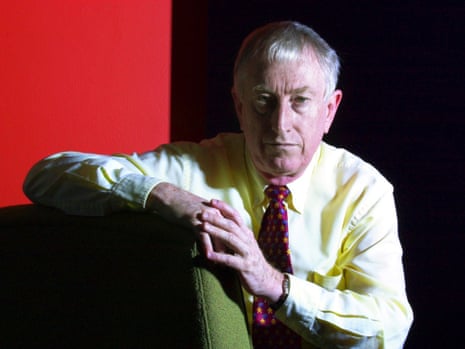Tony Abbott has come under fresh pressure to put climate change on the agenda at the upcoming G20 gathering, with a group of medical scientists led by the Nobel laureate Prof. Peter Doherty warning Australians face “serious health risks” if the issue isn’t urgently tackled.
In an open letter to the prime minister, a group of 12 of Australia’s leading medical scientists call on Australia to take a “strong lead” in reducing carbon emissions or risk a major impact on public health.
“Adverse health outcomes related to climate change are already evident in many regions of the world,” the letter states.
“By mid-century serious health risks are likely to be widespread, particularly in vulnerable communities, including in Australia. Workloads and economic and logistical demands on the nation’s health system will also rise as these impacts increase.”
The scientists cite a large number of health risks posed by climate change, including heatwaves, fires, water shortages and the spread of disease-carrying mosquitoes.
Regional food production is set to decline, while mental health and rates of illnesses such as gastroenteritis are expected to worsen as temperatures rise.
The experts state that “mismanagement of the world’s climate and environment is weakening the foundations of health and longevity”, calling on Abbott to embrace clean energy technology.
“This issue warrants urgent consideration at the G20 meeting,” the letter reads. “The health of present and future generations is at risk from ongoing human-induced climate change.”
The authors include Doherty, Prof. Gus Nossal, Fiona Stanley and the editor-in-chief of the Medical Journal of Australia, Prof. Stephen Leeder.
Unlike previous G20 meetings, the upcoming gathering of the world’s leading powers in Brisbane will not have climate change on the agenda. The Abbott government has stressed that economic growth will be the primary focus of the talks. Abbott has said the topic of climate change is likely to come up in discussions but added that it was “important to ensure that these international meetings don’t cover all subjects and illuminate none”.
In July, Australia became the first country to repeal a price on carbon emissions. The government is also looking to scrap the two key clean energy bodies – the Clean Energy Finance Corporation and the Australian Renewable Energy Agency – and is reviewing the country’s 20% renewable energy target.
Australia currently has no policy to reduce carbon emissions, with the Coalition’s preferred replacement for carbon pricing, the Direct Action climate plan, facing severe opposition from Labor, the Greens and the Palmer United party in the Senate.
Several independent analyses have cast doubt on whether the plan could meet Australia’s target of a 5% reduction in emissions by 2020, with the Department of the Environment recently admitting it has not done any modelling as to the scheme’s impact.
The US president, Barack Obama, has pledged to cut emissions from power plants by 30% by 2030, on 2005 levels. This would be achieved by imposing strict new standards on coal-fired power stations that will push US states into cleaner forms of energy, Obama said.
Last week the deputy Labor leader, Tanya Plibersek, told a meeting of US business leaders: “Nobody expects the G20 to be the meeting where people make binding commitments or talk about how exactly each country is going to reduce its climate emissions, but what the G20 can be is a statement that the G20 members understand that this is a pressing economic issue.
“By contrast the United States is setting a very good example in this area.”

Comments (…)
Sign in or create your Guardian account to join the discussion